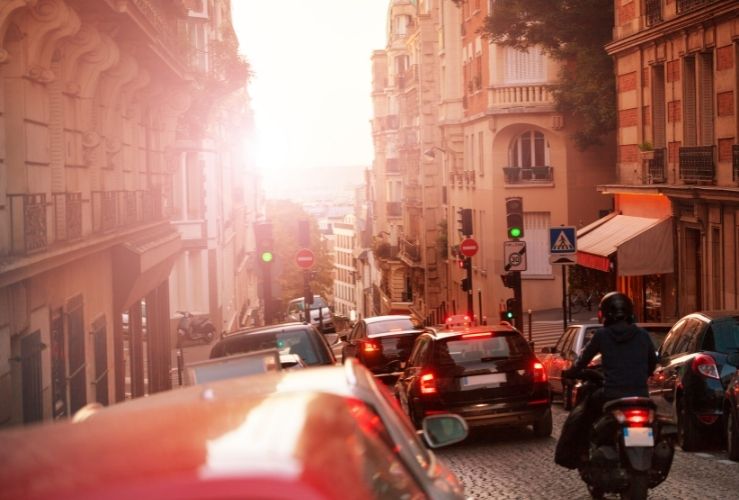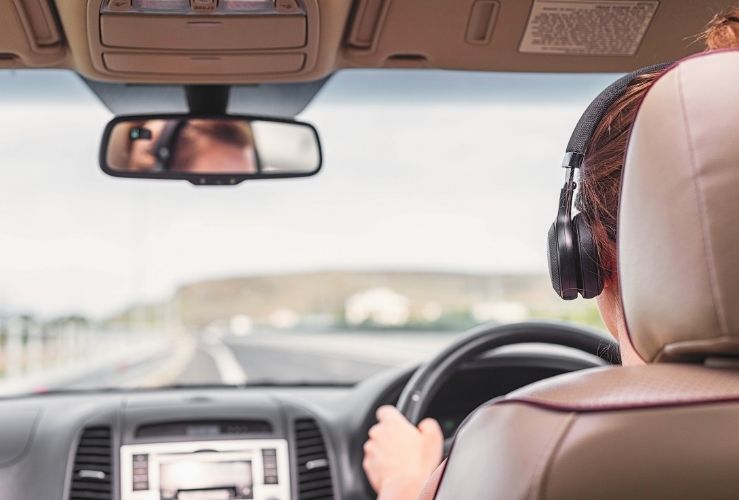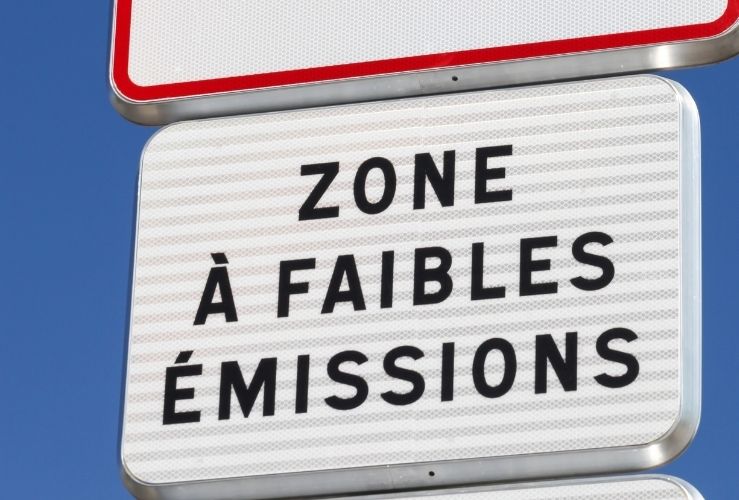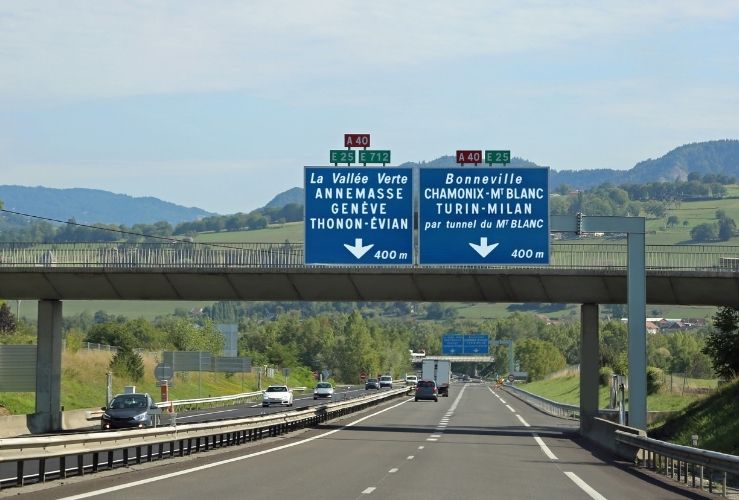Just 20 or so miles across the English channel, and easily reached by ferry or Eurostar, it comes as little surprise that, for us UK drivers, most trips to Europe by road involve some driving in France.
However, for some younger drivers this may not be a possibility. The legal limit for driving in France is 18 years old, so even if you hold a full UK licence, if you are 17, you will not be able to drive there.
For anyone else looking to drive in France the following rules and legal requirements for driving in France are important to be aware of.
But before you head off to drive in France, you’ll need to work out how you’re going to get there...

Driving to France from the UK: How to drive to France
If you’re looking to take your car to France on your next holiday or business trip, the first thing you need to decide on is the route that you’re going to take.
When driving to France from the UK, it’s possible to take a ferry, or alternatively, to travel via the Eurotunnel.
If taking the ferry, there are numerous ferry crossing options to consider.
Read our guide on crossing the channel with a car, to help you in deciding the best option for you when driving to France from the UK.
Driving in France requirements
Driving in France in 2022 is different from just a couple of years ago.
Since January 2021, UK drivers have been subject to new rules when driving in Europe.
Driving in France after Brexit
You may be about to venture on your first trip to France since Brexit, and be wondering what the rules are for driving in France after Brexit?
Are there different rules in place? Can I still drive in France with a UK licence? What travel documents are required for driving in France?
Here we look at everything you need to know about driving abroad in France.
Documents for driving in France
Can I drive in France with a UK licence?
If you are visiting France for a short trip, you can drive in France with a UK licence.
Planning a longer stay in France?
Following Brexit, the UK and French Governments reached a mutual agreement on the recognition of driving licences.
Holders of UK driving licences issued before 1 January 2021, may continue driving on their original valid licence. It is not necessary for them to apply to exchange it for the licence of their country of residence, except when the validity date on their original licence expires or the licence is lost or stolen.
On the other hand, holders of licences issued after 1 January 2021 who wish to live in France for more than one year must exchange their licence. In such cases, holders have a period of one year from when they settle in the country to apply for an exchange.
What other documents do I need to drive in France?
To drive in France you also require your Certificate of Motor Insurance and the log book (V5C) for your vehicle.
You are required to carry these documents, along with your driving licence at all times when driving in France.
Do I need a UK sticker to drive in France?
Yes, you require a UK sticker (Formerly GB Sticker) to drive in France.
When you are driving in France, a UK sticker needs to be clearly displayed on the back of your car.
Cars with number plates which include the UK identifier with the Union flag (also known as the Union Jack) on the left-hand side do not need stickers.
The UK sticker replaced the GB sticker in September 2021 so if you haven’t driven in Europe since this date, ensure that you have replaced your GB sticker with a UK sticker to enable you to legally drive in France.
What if my car has EU number plates?
Previously drivers with EU number plates (number plates with a circle of 12 stars on a blue background) did not need to display GB stickers. However, with the rule changes, drivers with number plates with 'GB' next to the European golden stars will also now be required to display a UK sticker on their vehicle when driving in Europe.
What do I need to drive in France? - What you must (and must not) carry when driving in France
Reflective jackets and warning triangles
As with many other European countries, driving in France requirements stipulate that car drivers in France are required to carry a reflective jacket in their vehicle, for safety purposes in the event of a breakdown.
In France the requirement for the need to carry reflective jackets extends to those on two and three wheels as well as car drivers. So if you’re planning to head over the channel on your motorcycle, ensure that you have the relevant clothing packed.
Car drivers must also remember to carry a warning triangle in their vehicle in case of a breakdown.
Snow chains
In addition to reflective jackets and warning triangles, if you’re heading to France in wintry weather, particularly the more mountainous regions, you will need to ensure that you have snow chains.
You must fit snow chains when driving on snow-covered roads in accordance with local road signs. A maximum speed limit of 31 mph (50km/h) applies.
Speed camera detectors
One thing you must not carry or use in your vehicle in France is a speed camera detector. Doing so could land you with a fine of up to €1,500 or even result in you having your vehicle taken away.
When driving your vehicle in France ensure your speed-trap cameras are turned off on your sat-nav!

Headphones and headsets
Using headphones and headsets (any device attached to your ear) behind the wheel is also illegal in France. –This covers devices used for phone calls as well as for listening to music.
The only exception to this rule is that you are allowed to use a Bluetooth or integrated systems in a motorcycle helmet.
What are the drink driving laws in France?
The drink driving laws in France are stricter than those in the UK; the limit is 0.5 mg/ml.
For new drivers less (than 3 years) the legal limit is just 0.02% so it’s probably better not to drink at all when driving.
Do I need a breathalyser to drive in France?
French law stipulates that all motorists driving in France – including tourists from the UK - carry an NF-approved (French Standard) breathalyser kit in their vehicle.
This law does look as though it is soon to be revoked; the French parliament approved a draft bill that would abolish it, but at present the rule remains in place in France's mobility laws.
Here are some further unusual driving rules you may encounter on a road trip to Europe.
Driving with children in France: What are the rules when driving with children in France?
In France, children less than 10 years of age cannot sit in the front of the car unless in a baby seat facing backwards (airbag disabled) or unless there is a legitimate reason the back seat cannot be used, such as there being no back seats or they are already occupied by other children under the age of 10 years.
There is a €135 fine for not securing a child properly in your vehicle.
Children between 135cm to 150cm require a booster seat and children less than 135cm are required to be secured in a child’s safety seat.
Are dipped headlights required when driving in France?
When driving your car in France you must use dipped headlights in poor daytime visibility.
Motorcyclists are required to use dipped headlights during the day, irrespective of the weather conditions.
You will also need to adapt your headlights for driving on the right hand side of the road, as opposed to the left side in the UK.
Headlight Deflector kits can be purchased or your vehicle may have a manual or electric adjustment to alter the direction of the headlight beam.

Low Emission Zones: Are there LEZ's in France?
French cities including Paris, Lyon, Lille, Marseille, Toulouse and Grenoble have low emission zones, which apply to all types of vehicles including cars and motorcycles.
When driving in a low emission zone in one of these cities drivers have to display the appropriate CRIT’Air sticker (Air Quality Certificate) in their windscreen or face a fine. This rule not only applies to French citizens but anybody, including UK drivers, driving within one of these designated areas.
If you’re going to be driving in France it is advisable to apply for the sticker so that you're covered, just in case you pass through one of these areas.
French speed cameras
Several speed cameras in France are multi-functional.
‘Cameras of the future’ the ‘Mesta Fusion’ will not only catch you if you are speeding, but they can, amongst other rule breaking driving activities, catch you using your phone, without your seatbelt on, illegally overtaking and tailgating.
What are the speed limits in France?
Like here in the UK, the speed limits in France depend on the type of road that you are travelling on.
Speed limits in France are listed in kilometres (km/h) rather than miles, so British drivers need to be extra vigilant during a French road trip.
The main speed limits in France are:
- Motorway (Autoroutes) - 130 km/h / 80 mph
- Dual carriageways - 110 km/h / 70 mph
- Main roads outside built up areas - 80 km/h / 50 mph
- Main roads within built-up areas - 50 km/h / 30 mph
Many foreign drivers also don’t realise that, unlike here in the UK, speed limits in France are variable.
The speed limit on French roads lowers during wet weather:
- Motorways (Autoroutes) - 110 km/h (68 mph)
- Dual Carriageways - 100 km/h (62 mph)
- Main Roads Outside Built-Up Areas - 70 km/h (43 mph)
- Main Roads Within Built-Up Areas - 50 km/h (31 mph)
In foggy weather, the speed limit of French Autoroutes (motorways) drops further, to 50km/h (31mph) when visibility is down to 50m.
Towing a caravan in France?
If you are towing your caravan to France, then there are additional speed limits that you need to be aware of.
If the total weight of your car and caravan is under 3.5t, then there is no difference to the speed limits that are applicable to a normal car.
However, if the total weight is over 3.5t, then motorway driving is limited to 90 km/h (56mph) and 80 km/h on roads outside of built-up areas.
If you are towing a caravan and the weight of the caravan exceeds that of the car, the speed limits are lower as follows:
- If the excess is less than 30% - 65 km/h (40mph)
- If the excess is more than 30% - 45 km/h (28 mph)
French roundabouts
France is home to the Arc De Triomph roundabout, probably the most famous roundabout in Europe, if not the world.
It is the norm for cars on this roundabout to give way to traffic entering onto the roundabout.
However, this is not the norm throughout the country. Indeed, on most roundabouts in France, the standard cédez le passage – give way – is in place. This means that you give way to traffic already on the roundabout – the same way it works here in the UK.

Advice for driving in France on French motorways
Breakdown fees for French motorways
Breaking down on a motorway in France is a different experience from breaking down on a motorway in the UK. The procedures can be alien to a tourist who hasn’t familiarised themselves with the rules ahead of taking a road trip in France.
French motorways (Autoroutes) are privately owned. If you happen to break down on one, you’ll need to arrange with the routes recovery operators for a breakdown call-out and tow-in – For which there is a fee.
In the event of a breakdown use one of the orange emergency telephones positioned every 2 km along the motorway (or if you can’t find an orange phone, call the emergency services on 112)
The route operators will arrange for a breakdown call-out and tow you to a designated safe area, where you can call your breakdown provider for help.
For this service you will be required to pay a fee of at least €126 to get towed. – Or at least €190 if you breakdown at night, on a weekend or a public holiday – but don’t worry, if you’ve got European Breakdown Cover with Start Rescue you can get this fee reimbursed when back in the UK. (up to a maximum of £150.00).
For breakdown cover in France, get a quote online from Start Rescue.
Planning a European road trip this summer?
These articles on some of the best European road trips may be the inspiration you were looking for:
- Best European drives this summer
- Road trip in Switzerland, France and Italy
- Summer driving holiday - The Basque Country Circuit
Travel Insurance for Europe
Whilst travel insurance isn't a compulsory requirement, having a travel insurance policy in place will give you the peace of mind that you have a range of cover should anything unfortunate happen during your trip.
As a Start Rescue customer you can benefit from discounted prices on your travel insurance from Start Travel.
Right now, you can save up to 25% on your travel insurance policy. Full details of this offer can be found within the Customer Lounge once you have purchased your policy.




